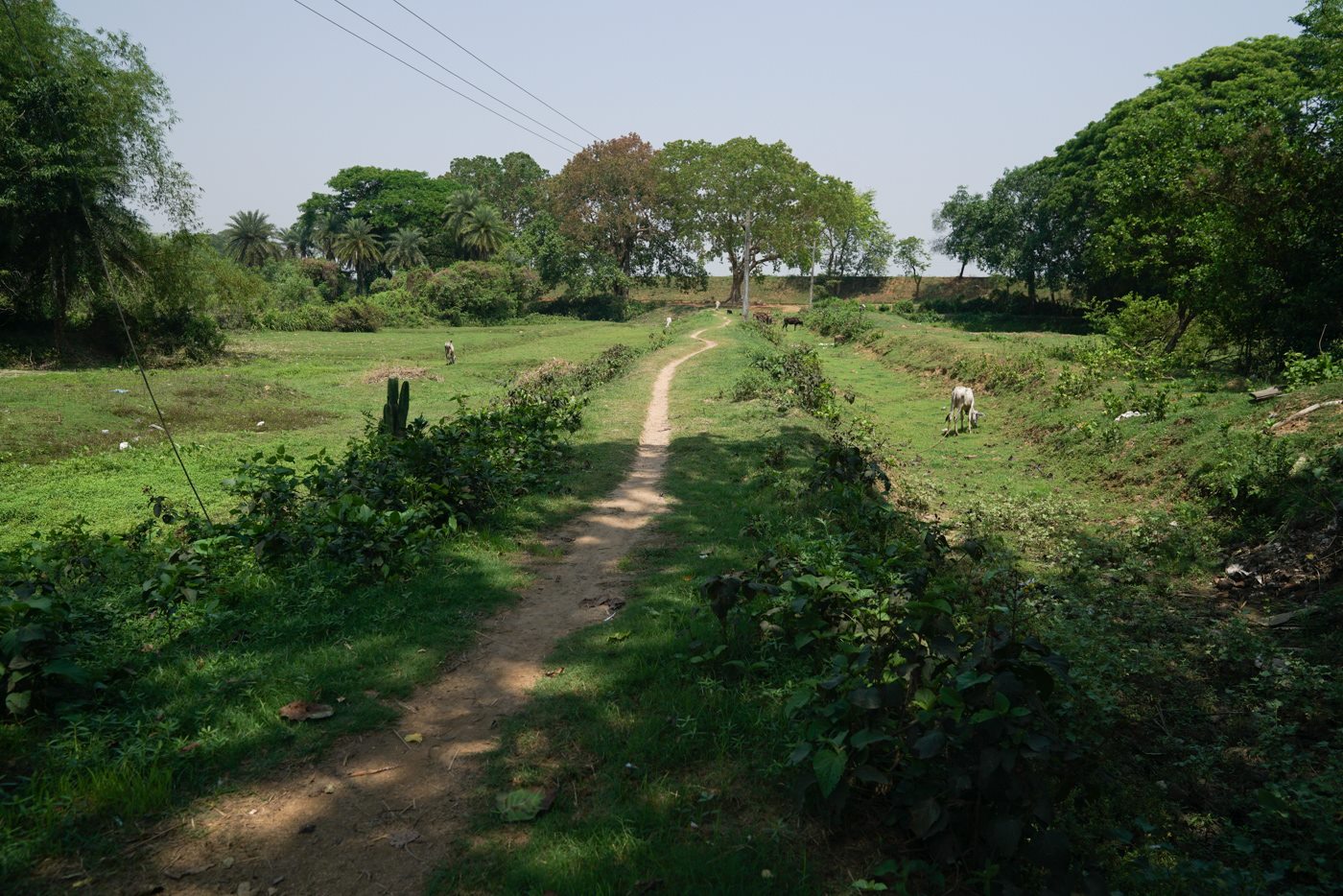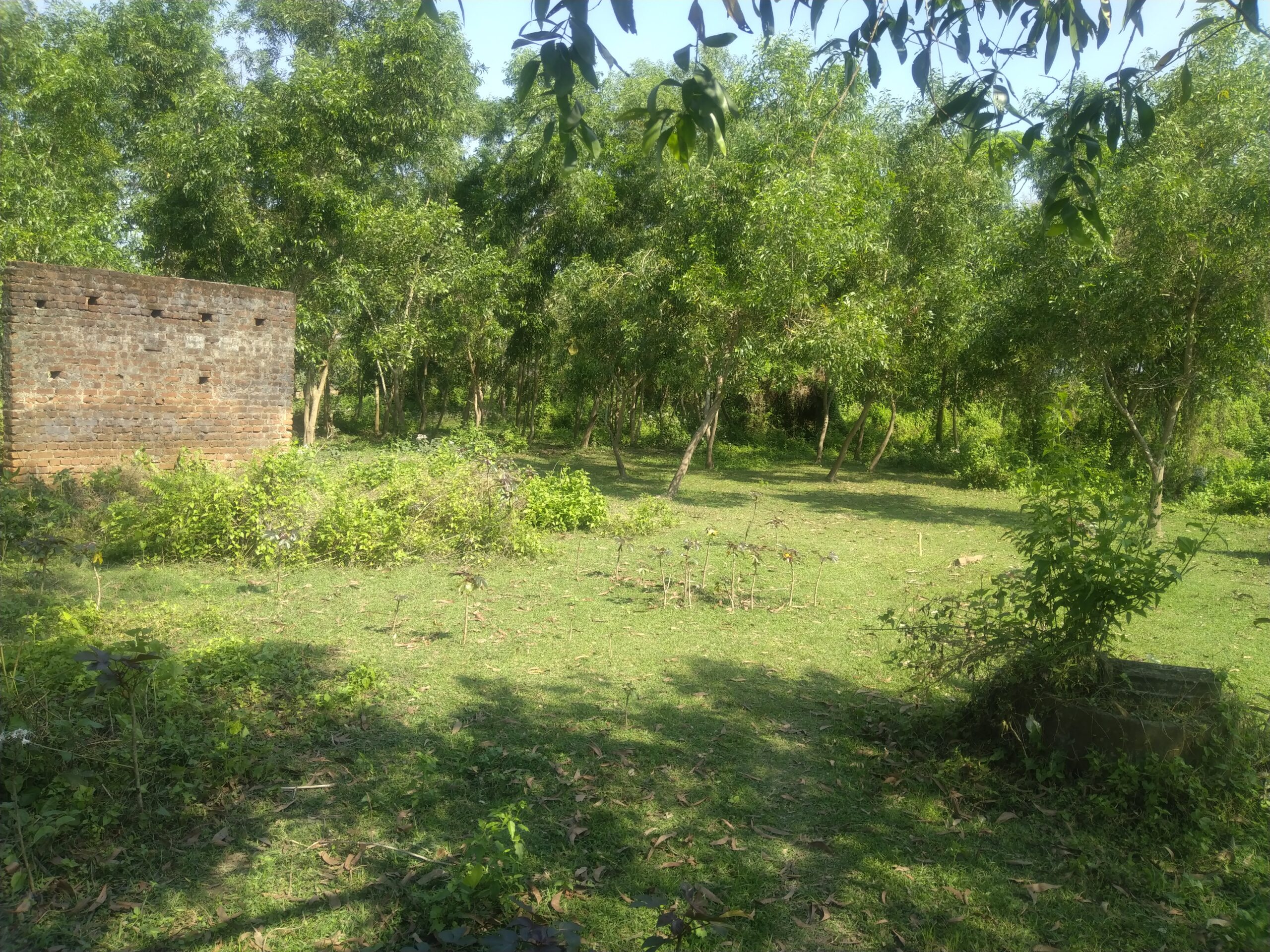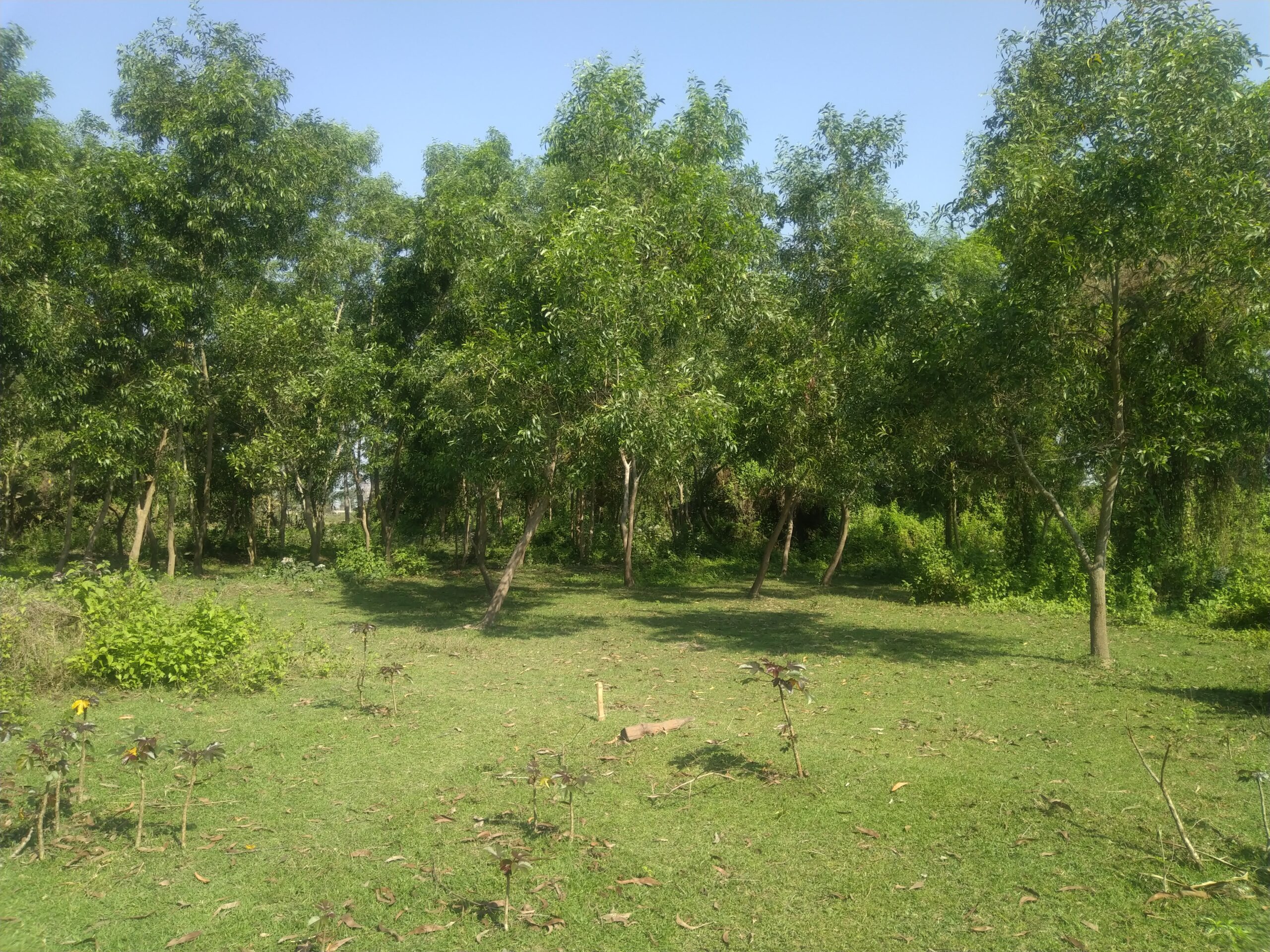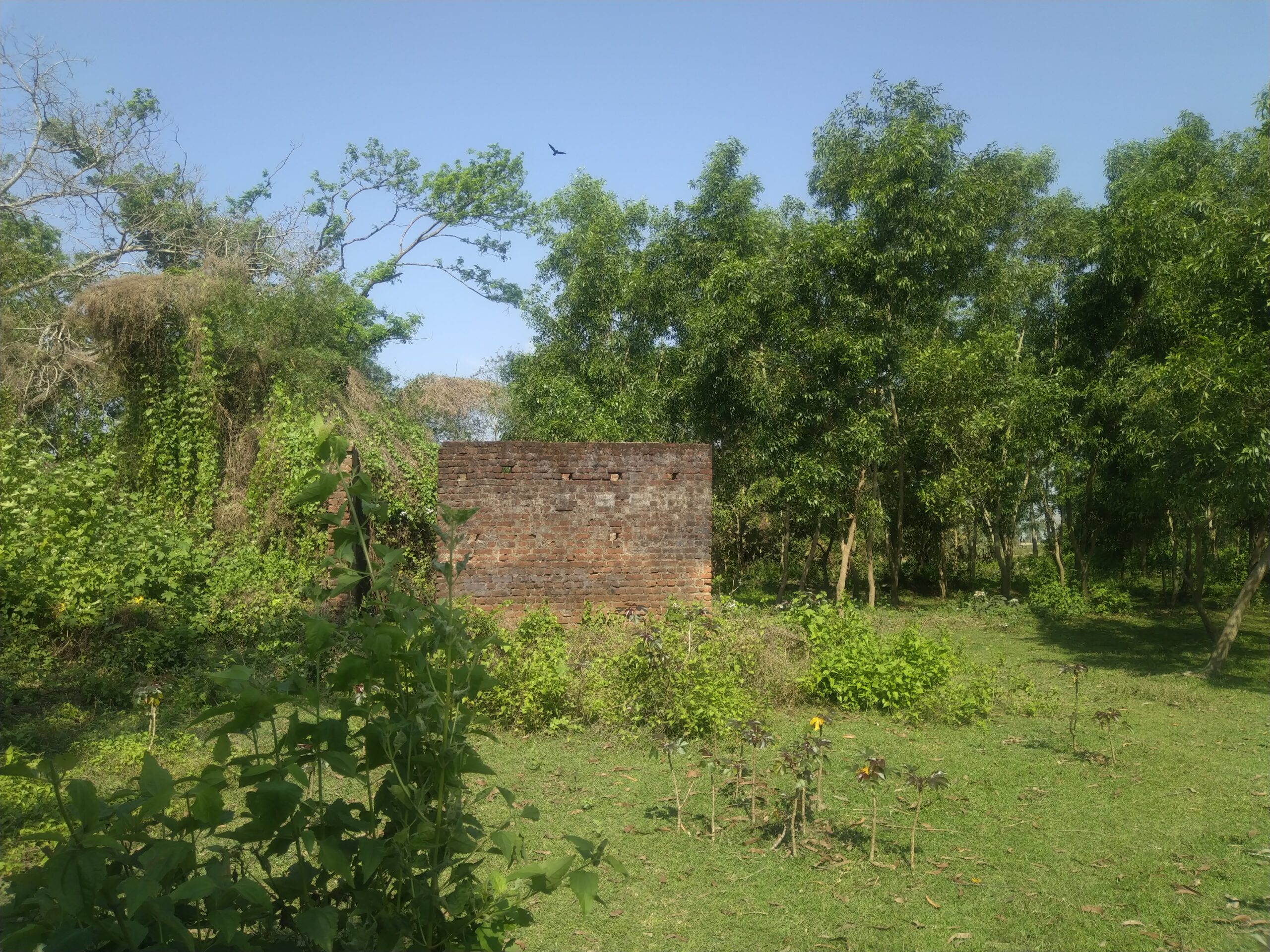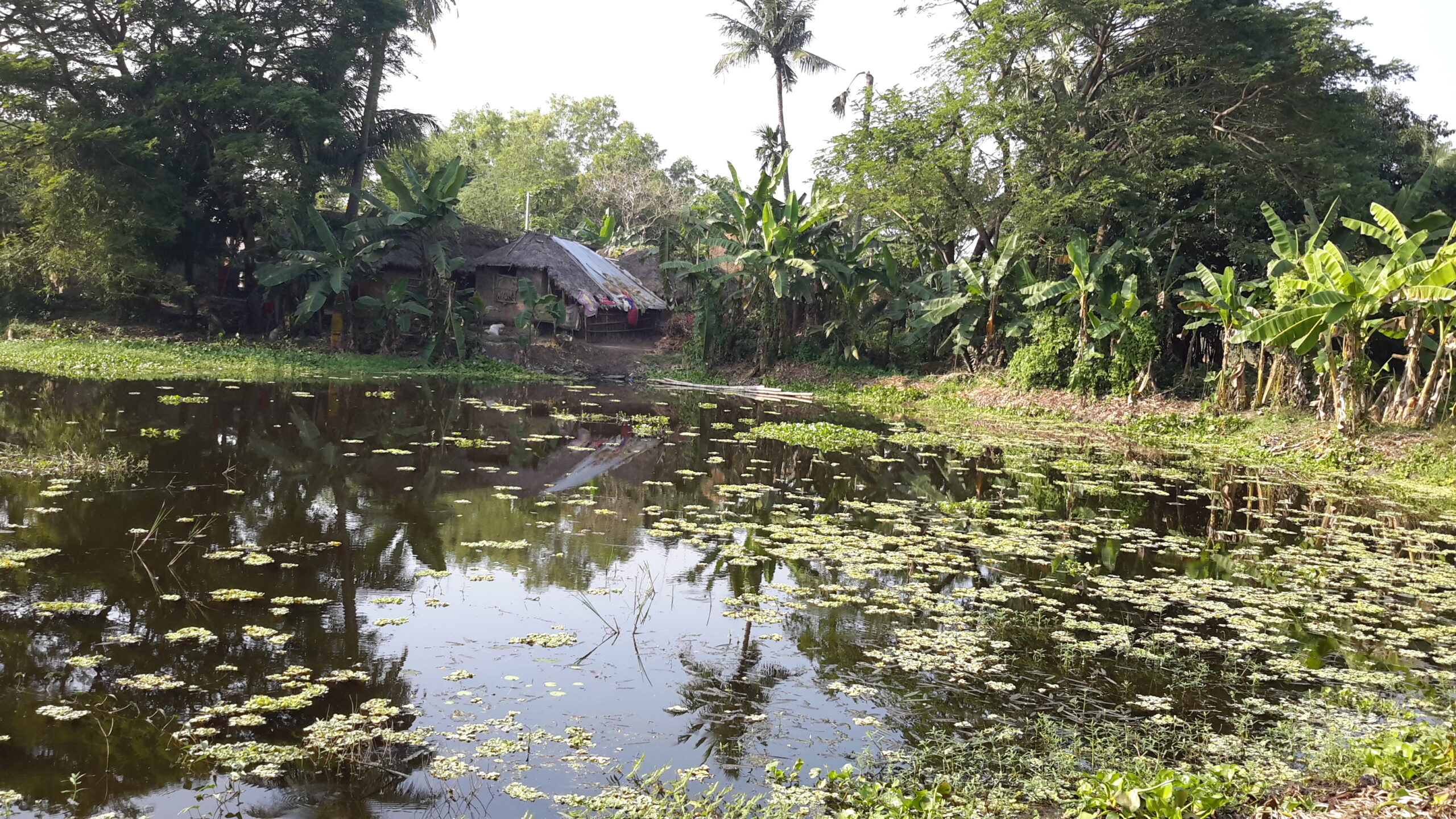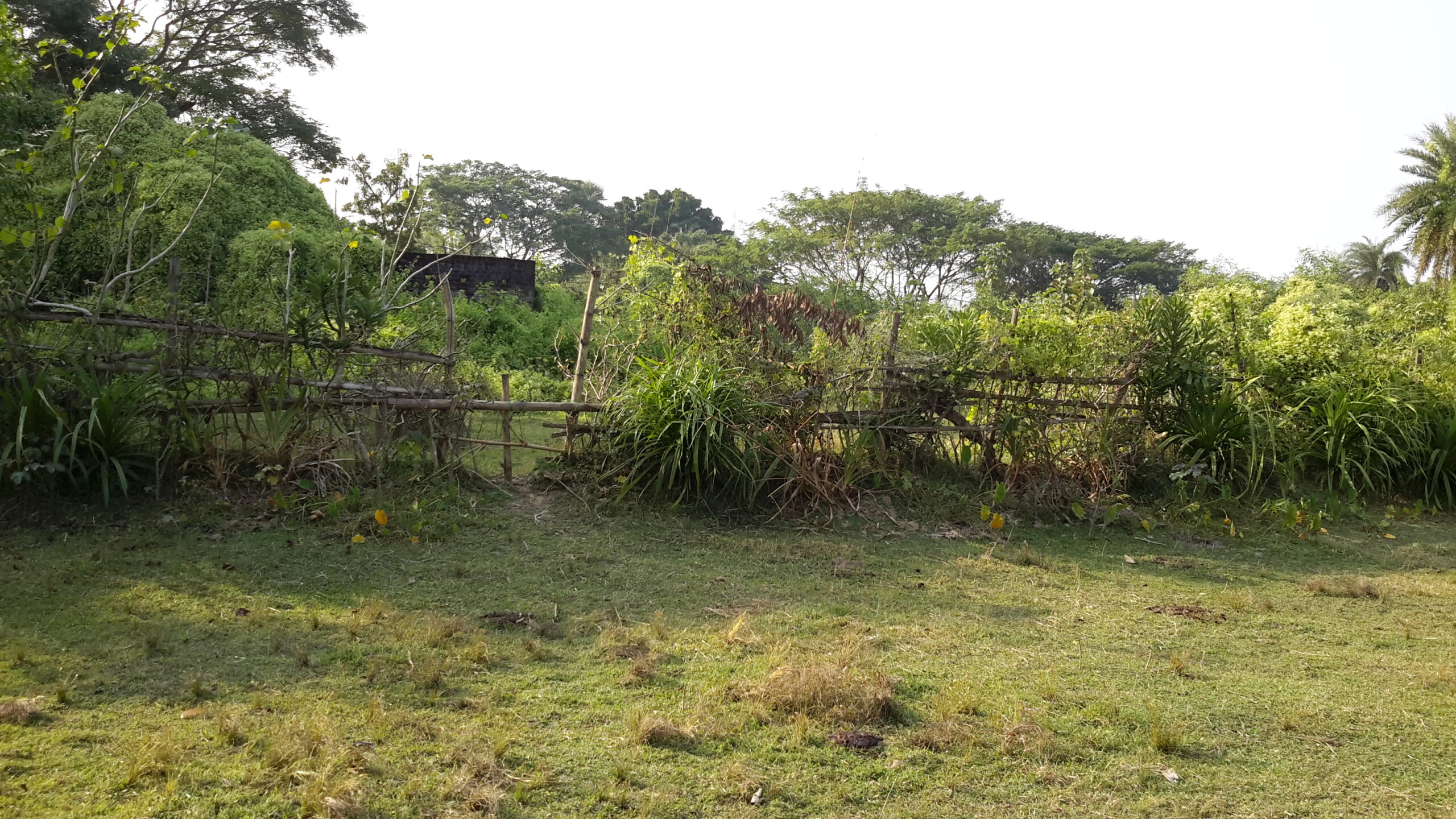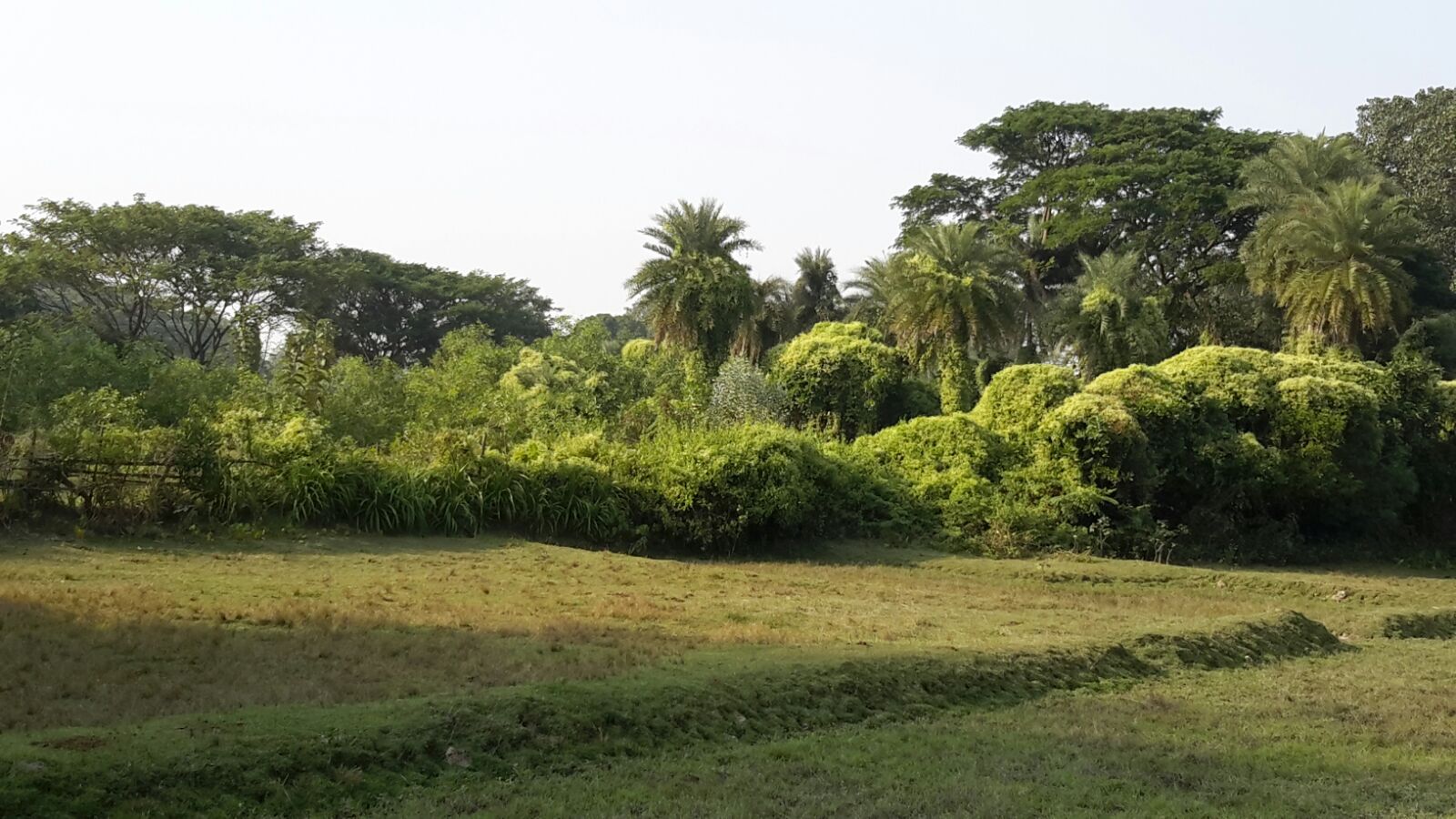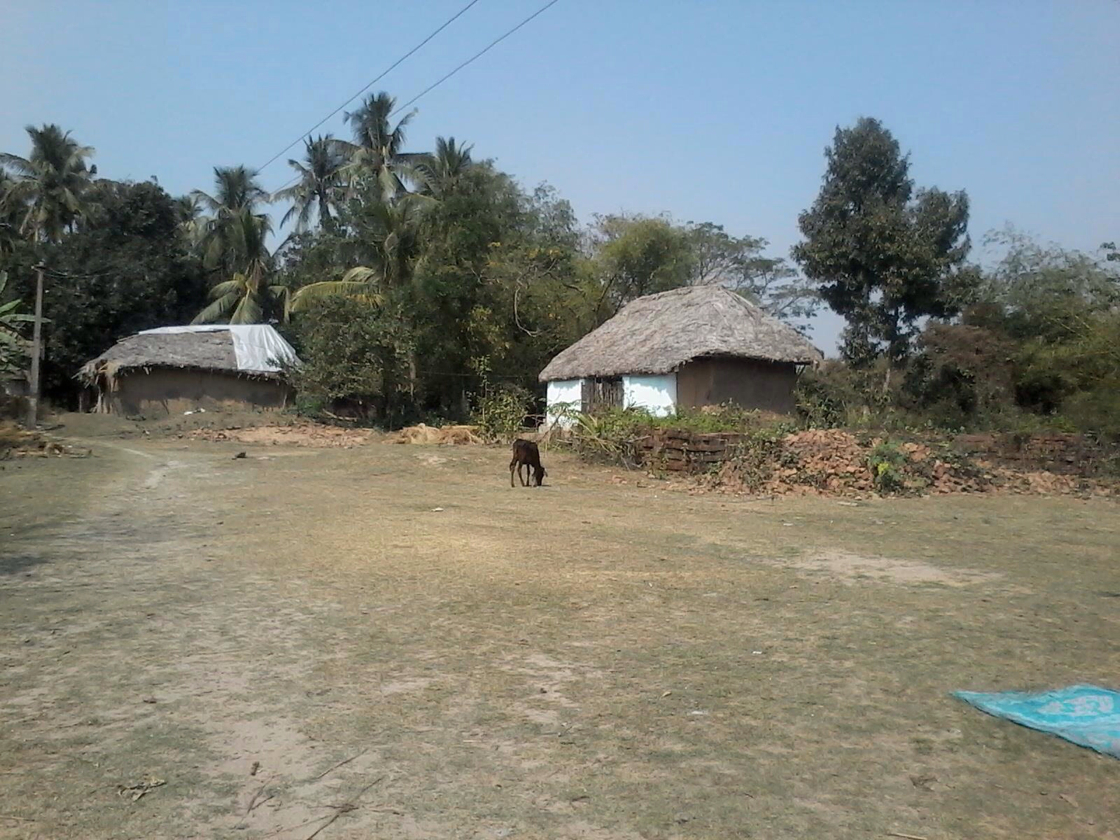What is Chhoti?
page 1/2
The text on this page (1/2) is taken from the book Choti; The Native Place of Śrīla Ṭhākura Bhaktivinoda (1999) by Dr. Fakir Mohan Dās.
Chhoti (literally meaning ‘small’) is a village in Odisha and the śrīpāt of Śrīla Bhaktivinoda Ṭhākura. A śrīpāt is the native place of a great saint. Such places are considered worshipable by all followers of that saint. According to Indian tradition, the village where one’s paternal ancestors resided is considered to be one’s native place.
Thus, in the case of Śrīla Bhaktivinoda Ṭhākura, although he took birth on September 2, 1838 in his maternal uncle’s house in Ula, West Bengal, his native place is village Chhoti in the Kendrapara District of Odisha.
The name of village Chhoti has had some changes: It used to be Choti Mangalpur. After that it was changed to Choti. The official spelling of the name, however, is Chhoti.
Śrī Krishnananda Dutta moves to Odisha
In the 16th century, Śrī Krishnananda Dutta, an initiated disciple of Śrī Nityānanda Prabhu and wealthy land-owner residing in Andul (West Bengal), decided to move to Jagannātha Purī (Odisha) and live there as a renunciate together with his deities Śrī Śrī Rādhā-Mādhava. While staying in Jagannātha Purī, Śrī Krishnananda Dutta met the king of Aul (city in Odisha). The king requested Śrī Krishnananda Dutta to reside within his kingdom. Śrī Krishnananda Dutta accepted the king’s request and was gifted an entire village called Chhoti. He resided in this village until his physical departure from this world.
The family of Śrī Krishnananda Dutta and their descendants remained in Calcutta (West Bengal) and lived there as rich landowners. Although they resided in Calcutta, they maintained their connection with Chhoti. The 7th generation of Śrī Krishnananda Dutta’s family faced serious legal problems and because of that lost all their Calcutta properties. Rajaballav Dutta, a descendant of Śrī Krishnananda Dutta, headed the family at that time. He decided, as a consequence of their loss of property, to leave Calcutta with his family and permanently live on his ancestral land in Chhoti.
One of Rajaballav Dutta’s children, Ananda Chandra, however, chose to stay in Ula (city in West Bengal) at his father-in-law’s house. It was in this house that Śrīla Bhaktivinoda Ṭhākura was born as Kedarnath Dutta on September 2, 1838.
Śrīla Bhaktivinoda Ṭhākura moves to Odisha
In 1849 Kedarnath Dutta’s father, Ananda Chandra, physically departed from this world. As a consequence, Kedarnath Dutta’s mother faced severe financial hardship. She nonetheless managed to arrange for the completion of Kedarnath Dutta’s education. In 1857 Kedarnath Dutta moved with his mother and the rest of the family from Calcutta to Chhoti and lived there together with Rajaballav Dutta. Due to Rajaballav Dutta’s physical departure in 1858, the landed property and landlordship [zamindari] of Choti Mangalpur [Chhoti] were recorded in the name of Śrīla Bhaktivinoda Ṭhākura. He acknowledges this in his book Maths of Orissa:
‘‘I have a small village (Choti Mangalpur, six miles from Kendrapara) in the country of Cuttack, of which I am the proprietor.’’
He also mentions about this small village in his autobiography:
”In Choti Mangalpur we have six or seven big thatched houses. Thakur Radha Madhava and Jagannath are being worshiped in one of these houses. Behind these houses there was a pond named Uasa Pokhari. There was a fence of kantā bāuṁśa [thorny bamboo] around the gaḍa [palace]. We did not think about our food, only because grandfather Rajaballav Dutta had nine parts (9/16) of the paternal zamindari here and the rest seven parts (7/16) belonged to the Ray family.”
The exact area in the village Chhoti where Śrīla Bhaktivinoda Ṭhākura resided
Thus, although Śrīla Bhaktivinoda Ṭhākura took birth on September 2, 1838 in his maternal uncle’s house in Ula, his native place [śrīpāt] is village Chhoti. After Śrīla Bhaktivinoda Ṭhākura’s physical departure in 1914, the landed property of Chhoti was transferred into the name of his son, Bimala Prasad Dutta (Śrīla Bhaktisiddhānta Sarasvatī), and it still stands in this name.
